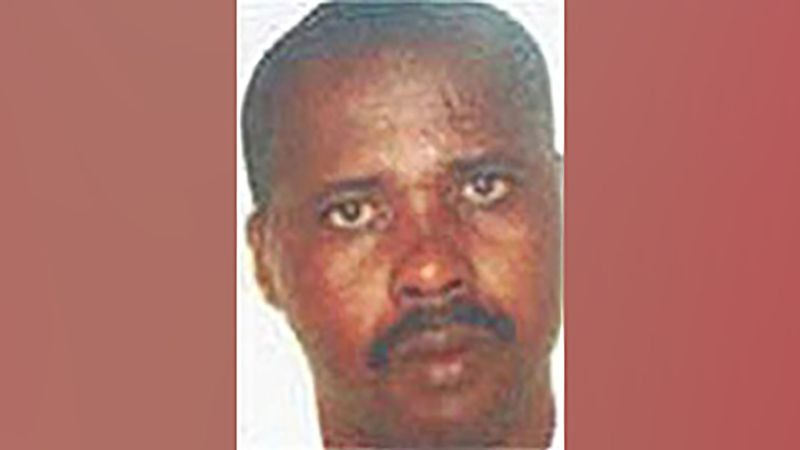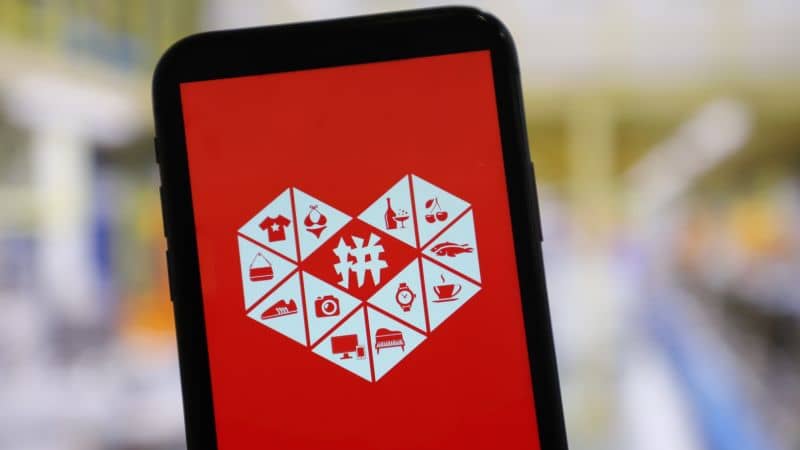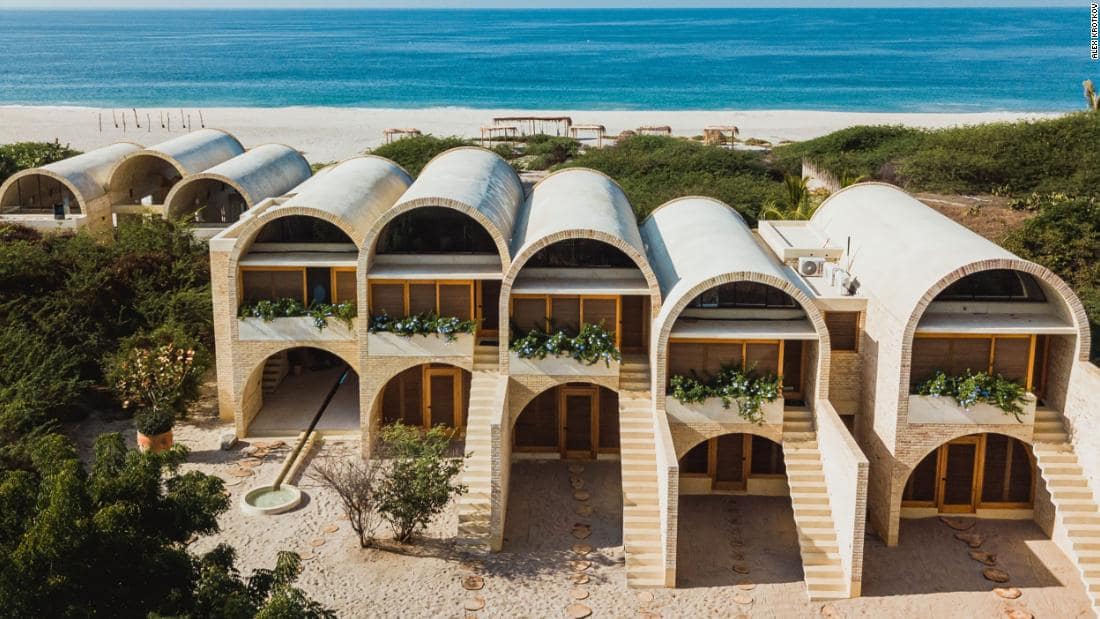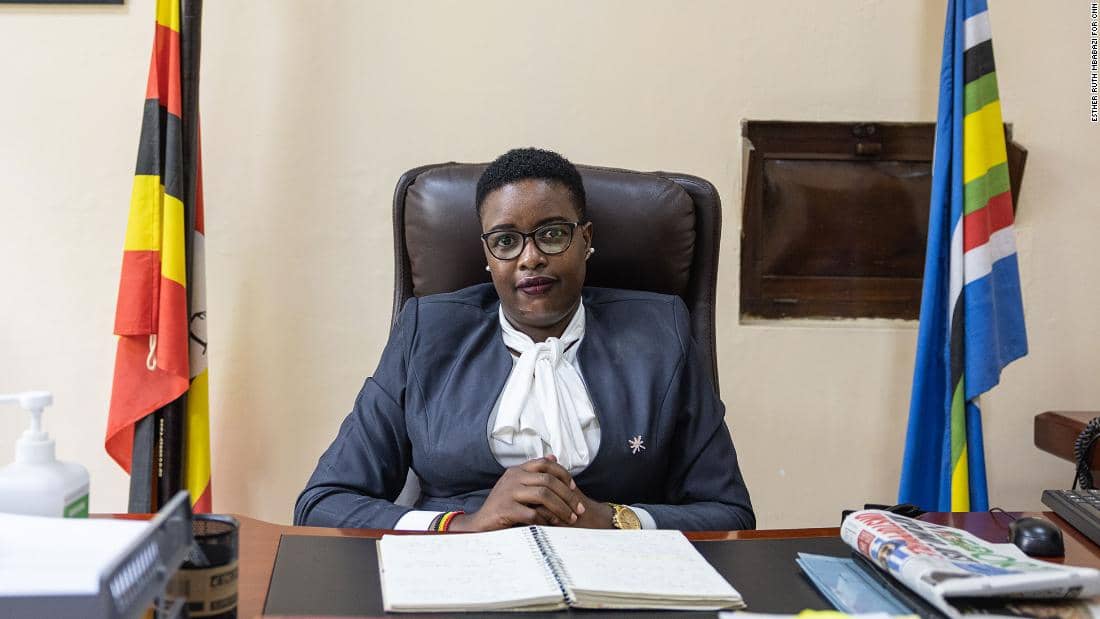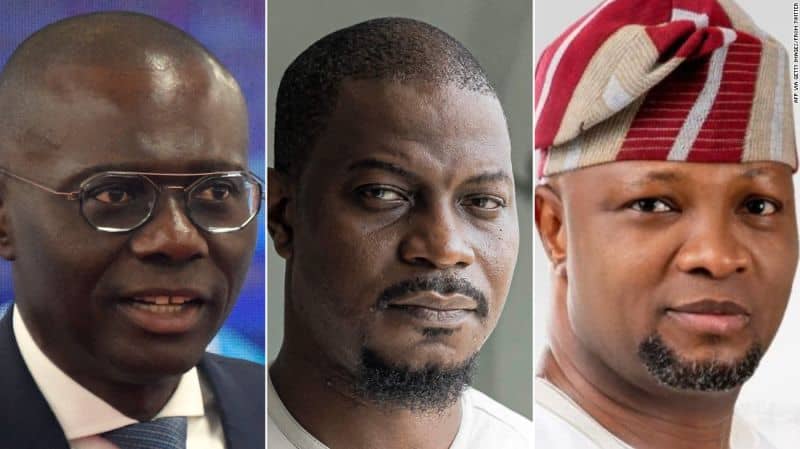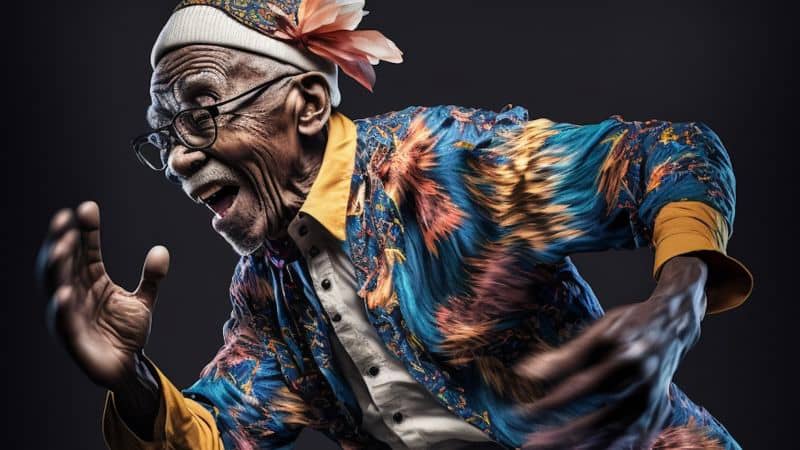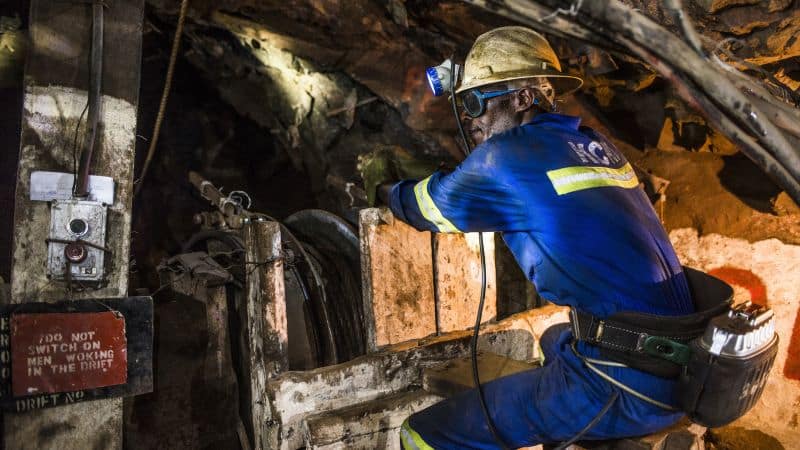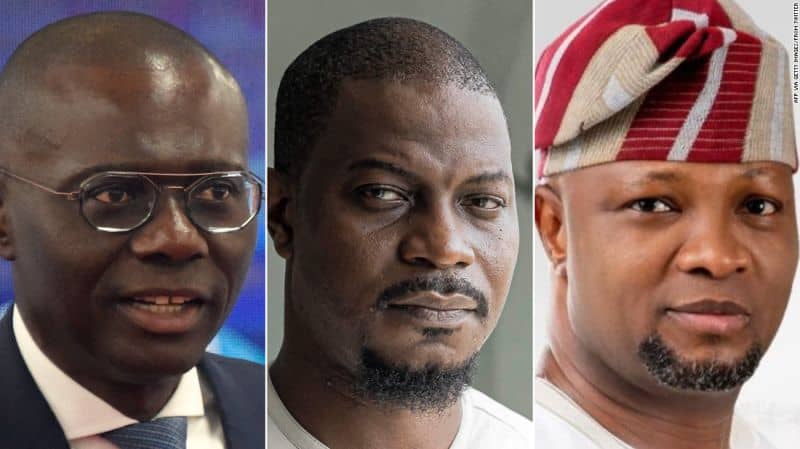London CNN — The UK’s controversial policy to deport some asylum seekers to Rwanda was deemed lawful by the country’s High Court on Monday. A group of NGOs, asylum seekers and a civil

CNN
—
Before music streaming was popular, Nigerian group P-Square was already among the pioneers of the sound now dubbed Afrobeats.
Twin brothers Paul and Peter Okoye have experienced both highs and lows since their 2003 debut, including six studio albums and collaborations with some of the biggest names in the industry, such as Rick Ross, T.I., Akon, and Tiwa Savage.
Yet the pair went their separate ways, breaking up P-Square in 2017 to pursue solo music careers behind their pseudonyms RudeBoy (Paul) and Mr. P. (Peter) – the latter also dipping his toes into acting in the 2018 drama, Genevieve Nnaji’s “Lionheart,” and more recently in the Netflix original “Shanty Town.”
Read more: ‘This is a dream’: Burna Boy, Afrobeats stars take center stage at NBA All-Star Game
“Anything you see that happens to a (music) group, it’s the same thing that happened to us,” Paul Okoye told CNN’s Larry Madowo during a recent interview in Lagos. “Irrespective of how people want to look at it, we felt the fans were disappointed,” he added. “We’re humans. It’s normal.”
Now, P-Square is back together and producing their first album in nine years, vowing a 2023 release date. After reuniting last August, they released the single “Jaiye (Ihe Geme)” to promote their “100 Cities World Tour,” starting with North America and continuing through Europe, Asia, the Middle East and Africa later this year.
Watch the video at the top of this page to hear more from Larry Madowo’s conversation with P-Square in their Lagos studio.
Don't Miss
A version of this story appeared in the November 18 edition of CNN’s Royal News, a weekly dispatch bringing you

Johannesburg
CNN
—
The most wanted fugitive in the Rwandan genocide of 1994 has been arrested in Paarl, South Africa after decades on the run.
Fulgence Kayishema is accused of orchestrating the killing of more than 2,000 Tutsi refugees – women, men, children and the elderly – at Nyange Catholic Church during the genocide. He has been on the run since 2001.
He was captured Wednesday in a joint operation between the South African authorities and UN investigators.
When he was arrested, Kayishema initially denied his identity, according to a statement from the UN team. But by the end of the evening he told them: “I have been waiting a long time to be arrested.”
Investigators said he used multiple identities and forged documents to evade detection.
“The arrest was the culmination of an intense, thorough and rigorous investigation,” a senior official at the prosecutor’s office involved in the case told CNN.
“Family members and known associates were exhaustively investigated. That ultimately led to identifying the right location to search and finding the critical intelligence that was needed.”
“Fulgence Kayishema was a fugitive for more than 20 years. His arrest ensures that he will finally face justice for his alleged crimes,” said Chief Prosecutor Serge Brammertz of the United Nations’ International Residual Mechanism for Criminal Tribunals (IRMCT).
“Genocide is the most serious crime known to humankind. The international community has committed to ensure that its perpetrators will be prosecuted and punished. This arrest is a tangible demonstration that this commitment does not fade and that justice will be done, no matter how long it takes,” Brammertz said.
At the end of the genocide in July 1994, Kayishema fled to the Democratic Republic of Congo with his wife, children and brother-in-law. After relocating to other African countries, he moved to South Africa in 1999 and claimed asylum in Cape Town, using a false name.
According to prosecutors, since his arrival in South Africa he was able to rely on a tight support network including former Rwandan military members which went to extreme lengths to conceal his activities and whereabouts.
In recent years, the IRMCT prosecutor has complained about the lack of cooperation from South African authorities and there have been a series of near misses capturing Kayishema. A report describes a failure to arrest Kayishema three years ago.
But on Thursday, Brammertz lauded the cooperation and support of the South African government.
The events in Nyanga, Rwanda, were one of the most brutal of the genocide, in which an estimated 800,000 Tutsis and moderate Hutus were killed over the period of 90 days.
The tribunal alleges that Kayishema directly participated in the “planning and execution of this massacre.” The indictment says he bought and distributed petrol to burn down the church while refugees were inside. Kayishema and others are also accused of using a bulldozer to collapse the church following the fire, while refugees were still inside.
The former priest at the church, Athanase Seromba, was convicted over the massacre in 2006 and sentenced to 15 years in prison, which was later increased to a life sentence on appeal.
Kayishema is due to be arraigned on Friday in a Cape Town court.
A reward of up to $5,000,000 was offered by the US War Crimes Rewards Program for information on Kayishema and the other fugitives wanted for perpetrating the Rwandan genocide.
With the arrest of Kayishema, the UN is still seeking three more prominent suspects.
In 2020, another fugitive was captured in a Paris suburb after more than 20 years on the run.
Félicien Kabuga, “one of the world’s most wanted fugitives,” who is alleged to have been a leading figure in the genocide, was arrested in a joint operation with French authorities.
The Rwandan genocide saw Hutu militias and civilians alike murder vast numbers of members of the Tutsi ethnic minority: men, women and children, many of whom had been their neighbors before the conflict began.
The killings finally came to an end 100 days later, when Rwandan Patriotic Front (RPF) troops, led by Paul Kagame, defeated the Hutu rebels and took control of the country.
Don't Miss
CNN — It is one of China’s most popular shopping apps, selling clothing, groceries and just about everything else under
New Delhi CNN — India will overtake China this year to become the world’s most populous country. The likelihood of
Editor’s Note — Sign up for Unlocking the World, CNN Travel’s weekly newsletter. Get news about destinations opening and closing,
But with this presence online, Nyanjura says she faces the now-standard challenges of being a woman in politics: in addition to the tweets of support or derision that most politicians on social media have become accustomed to, Nyanjura also receives tweets of misogynistic mockery.
“First get married then contest on the presidential seat, (because) you can’t rule (people) who are married. What would you be advising them?” asked another.
As the Deputy Lord Mayor of Kampala, Uganda’s capital city, Nyanjura is no stranger to personal attacks online, which she tells CNN increased in volume after she took on her mayoral appointment nearly three years ago, and cover everything from the length of her hair to her age and marital status.
“The fact that I am single was another reason for the bullying with many saying that it was the reason I got the position,” insinuating that she had used sex to get ahead, Nyanjura tells CNN. People will say “I am not responsible because I am not married,” she says. And if they ever saw her with a man, even just standing next to one, “they would want to make it an issue.”
The 33-year-old politician, who was a student activist at Makerere University in Kampala before entering into politics in 2016 and joining the Forum for Democratic change (FDC), one of Uganda’s main opposition parties, says that the harassment she gets on social media and messaging platforms is worse when she advocates for gender equality.
“Many feel advocating for equity and equality is an abuse of culture and religious beliefs. For all my posts advocating for gender equity, I receive abuse or insults,” Nyanjura explains, adding that her advocacy posts on social media usually get lifted and shared across several WhatsApp groups, followed by abuse on all platforms.
Nyanjura goes on: threats of “physical attacks happen when I am planning a demonstration and posting about them on social media … I get threats of being arrested or being carried in a ‘drone’ (a nickname given to the vans that have reportedly been used in arrests of political activists in Uganda). So, I stay away from my home at such times and ask my family members to do the same,” she told CNN.
At first, the abuse made her feel awful, she says, but aware that her abusers want to silence her Nyanjura tells CNN that she’s decided to stand her ground and be a positive example for other women in public life.
“There are so many women who are not on any of these media platforms (but) if I am to go off social media because I have been bullied, what example am I creating for other women that are following me, my posts, my videos and pick encouragement from me?”
One in two Ugandan women in public life targeted
Recent surveys in Uganda have revealed stark numbers highlighting how common it is for women to be targeted online.
“Many of them stopped using the apps and stopped organizing online,” says Irene Mwendwa, Director of Strategic Initiatives at Pollicy.
The report, the second by the IPU, following one in 2018 on European parliaments, found that in comparison “online attacks are also common but lower than in Europe,” attributing the difference to “greater disparities in women’s access to the internet between the two regions.”
When Olive Namazzi decided to go into politics, she believed she would have a rewarding public life. But Namazzi, who, like Nyanjura, is 34 and in the FDC, says she hadn’t realized that stepping into the political arena as a woman — and one with a disability — would kick off a campaign of cyberbullying that would last for more than a decade.
As part of its commitments, the FDC prioritizes women’s empowerment. In her role overseeing health, education, environment and sports for the Kampala City Council, Namazzi says social media is a vital tool to help make her work in the community visible and to build voter support. But it is also a space she says she must defend herself against a torrent of abuse.
Speaking on why women politicians and public figures experience more cyberbullying than their male colleagues, Namazzi tells CNN: “People find us easy targets. Once you are a woman who is known, you are a likely candidate for bullying.”
An accident in 2013 left her with a limp, for which she wears specially made shoes. For her detractors, this is something to mock. She described an exchange in a WhatsApp group she’s in: “I was trying to reason somebody out intellectually and then somebody (else) came and started abusing me that I put on shoes that are not balancing. He started telling me about how I can’t balance when I am walking,” Namazzi says. “It was below the belt.”
In another WhatsApp group, this time a private group chat with other politicians, Namazzi says remarks were made about the age at which she got married and started a family. “What I find interesting is that sometimes these abuses are from our very colleagues who are educated and whom we expect to understand us,” she says, adding: “This is on a platform of leaders. It was very bad.”
Namazzi and Nyanjura’s experiences are supported by the IPU and APU’s 2021 research, which found that the majority of abuse women parliamentarians face, comes from their male peers, especially those from rival parties. The report also found that women parliamentarians who live with disabilities as well as those who are unmarried, under 40, and from minority groups, suffer more violence. As Nyanjura’s account shows, women MPs who promote women’s rights and gender equality are also targeted, the report found.

Systems Error
A law in place for over a decade
This online abuse of women politicians is happening in a country that has had a cybersecurity law in place for more than a decade.
Uganda’s Computer Misuse Act initially prohibited offensive communication and cyber harassment and was amended in 2022 to add hate speech to the list. The offensive communication part was ruled unconstitutional earlier this year, but cyber harassment is punishable by a fine of “up to seven hundred and fifty currency points” or imprisonment up to seven years, or both.
This “undermines the ability and efficacy (of laws) as tools against cybercrime,” says Eron Kiiza, a human rights lawyer and member of the Uganda Law Society Rule of Law Committee. Kiiza adds that cyber laws are typically “vaguely drafted and prone to legal challenges,” which “brings problems when cases are taken to court.”
Multiple legal and women’s right’s experts told CNN that the challenges with using the law to successfully prosecute online harassment results in women deciding not to report abuses to the relevant authorities.
For Namazzi, the police are of no help, she says. “Authorities do not consider online bullying to be as serious as physical bullying and therefore do not treat it with the severity that it needs,” she tells CNN.
CNN reached out the Uganda Police Force and the Justice Ministry for comment, but they did not respond.
Experts and activists in the country say that better-targeted protections are needed to ensure women stay vocal and visible in Ugandan politics and feel confident sharing their work and views as much as men in the same positions of power.
“We really need the women’s voice to change the way that economies and politics and social policies are made,” says Brigitte Filion, gender equality programme officer for the Inter-Parliamentary Union. “When there are women in parliaments, there is also more laws and policies on issues like violence against women and gender-related issues… It will be a very big loss for society in general if women are not involved equally in politics,” she says.
Learning how to respond to abuse
With laws failing to protect women, civil society organizations like Pollicy have spent years creating national and regional programs to help women protect themselves online.
“Less than a quarter of African national parliamentarians and local government are women,” explains Pollicy’s Mwendwa. “Digital upskilling will enable women politicians to scale up their work, their careers (and) their communities.”
People “weave through the maze of threats which are presented with lessons on how to navigate such threats in real life,” Mwendwa explains.
The game helped Namazzi learn how to respond to her bullies. “It taught me when to ignore and how to block bullies. It guided me on how to report bullying to the platforms where it was happening,” she tells CNN.
Pollicy also runs training events for women policymakers. In February, Mwendwa says 90 women from Uganda, Tanzania and Senegal came together as part of the Vote: Women program. Here, participants were able to share personal experiences as well as get training in digital resilience, combatting online violence and harassment, and engaging safely in public debate. Both Nyanjura and Namazzi attended the event.
“Rather than cower to the bullies, I have chosen to stay on”
Multiple organizations are working with Uganda’s beleaguered women politicians to achieve what they say the laws in place are failing to accomplish, including the Women of Uganda Network (WOUGNET), an NGO that promotes the use of technology among women, girls and women’s rights organizations, formerly run by Peace Oliver Amuge as Executive Director.
WOUGNET, now active for more than 20 years, works with women leaders to not just address their own experiences of abuse but also to better legislate on these issues. Amuge points out that while the hate speech amendment does mention gender, Uganda’s Computer Misuse Act does not specifically cover online gender-based violence, which they are advocating for.
She agrees that online engagement can be an effective tool in politics, but warns that many women are avoiding online platforms for fear of abuse. But Nyanjura and Namazzi are determined to stay engaged and to stay in politics, despite the costs.
“I almost ran mad engaging a bully for two days nonstop,” says Namazzi. “But I was determined to be a politician against the odds of any kind of intimidation…Rather than cower to the bullying, I have chosen to stay on and attack them right back.”
“I want to tell (other women) when you stand up, (harassers) will eventually leave you alone,” says Nyanjura before adding: “If women do not embrace the digital world, they are definitely going to be left behind.”
The Ugandan Ministry of Information and Communication Technology did not respond to any of CNN’s multiple requests for comment.
—-
Credits
Reporting: Adie Vanessa Offiong
Editors: Meera Senthilingam, Eliza Anyangwe
Photography: Esther Ruth Mbabazi
Photo Editor: Will Lanzoni
CNN
—
Although Nigeria has vast energy reserves, more than 92 million people in the country live without access to electricity, according to the International Energy Agency. Those who are connected to the electricity grid have to contend with frequent power cuts, which cost the country $28 billion a year – almost 2% of its GDP.
As a result, many Nigerians rely on petrol and diesel to fuel the generators that power their homes and businesses.
But generators are noisy, expensive, and pollute the air. Fuel shortages were a key issue in Nigeria’s recent presidential election and have made it increasingly difficult to run generators.
Entrepreneur Olugbenga Olubanjo is offering an alternative. His company Reeddi rents out small, lightweight solar-powered batteries called “Reeddi Capsules” that can power devices including TVs, laptops and refrigerators.
Reeddi was one of the finalists for Prince William’s Earthshot Prize, which recognizes ambitious efforts to fix environmental problems. In a podcast, the Prince of Wales said that “the capsule will have a huge influence on communities where energy poverty is a big deal.”
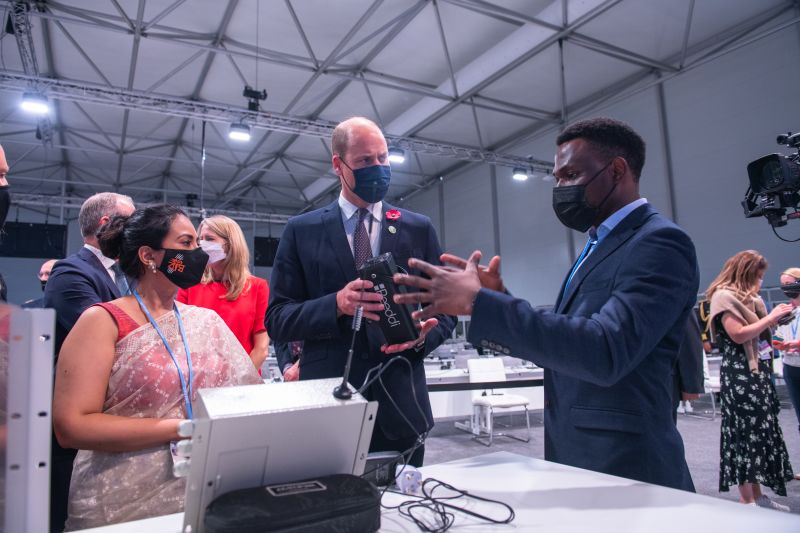
Olubanjo grew up in Nigeria and says that during his time studying engineering at the University of Ibadan, he often had to work on his assignments while contending with power cuts. As a postgraduate, he studied at the University of Toronto, in Canada. “For the first time in my life, I had access to electricity, and I saw my own productivity quadruple,” Olubanjo said.
Often, when calling family and friends back home, their power would go off, highlighting the energy inequality. “As I had a deep understanding of the community, I felt obliged to do something,” he said.
Reeddi Capsules can be bought along with a solar panel for 199,000 Nigerian Naira (around $430) or rented from “mom-and-pop shops” for 24 hours for around 50 cents, charged using solar panels operated by Reeddi. Olubanjo says one battery can power a TV for around five hours, or a 15-watt fan for 15 hours.
That makes it considerably more expensive than using mains electricity, but it’s often cheaper than running a generator.
Joel Jewell, a trader in Ogun State, says he uses the capsule most days to charge his laptop and phone. Without it, he is forced to rely on his generator during the regular power cuts. “We sometimes don’t (even) get two hours of power supply,” he said. “And Reeddi coming is a kind of an answer to prayer.”
Currently, the batteries are only available in Nigeria, where Olubanjo says they are used by more than 1,600 people, mainly in Lagos and Ogun State. But across the continent, more than 600 million people lack access to electricity, according to the International Energy Agency.

Olubanjo says organizations in countries including Uganda, Ghana and South Africa have expressed an interest in the Reeddi Capsule. “We’re going to try our best to optimize what we have in Nigeria before we scale it to that broader part of Africa,” he said.
Reeddi is not the only company offering battery packs as an alternative to generators. UK-based Mobile Power rents out batteries in countries including Nigeria, Zambia and Ghana.
Anita Otubu, a senior director of Sustainable Energy for All – a UN-affiliated organization that works to improve access to energy – says “companies like Reeddi are key contributors to reducing Nigeria’s access deficit.”
But she adds that if Reeddi is to scale up its business, it will need to make the battery rentals cheaper “or increase the capacity of each system, to enable Nigerians to have value for money when they purchase such systems.”
For Olubanjo, the company’s biggest challenge is keeping up with demand, with each batch of batteries taking three to four months to produce. But he is confident Reeddi can have a wider impact.
“The goal is to make the future (brighter) for a lot of Nigerians and Africans,” he said.
Don't Miss
Lagos, Nigeria CNN — Nigerians began voting on Saturday in delayed governorship polls, weeks after a controversial and disputed presidential
Story highlights Japan’s innovative wearable devices includes Archelis, a “standing” chair designed for surgeons. Tokyo’s first Wearable Expo debuted in
A summer of extreme heat and drought around the world has been a reminder that water scarcity is a pressing
CNN
—
A fashion show that features elderly people as models is a rarity. One with elderly Black African models is even rarer.
Perhaps that’s why Nigerian visual artist Malik Afegbua got so much attention from around the world when he posted images on social media last month showing seniors on a fashion runway, draped in stylish, colorful clothes.
Titled “The Elders Series,” the images challenge stereotypes around how older people are perceived, as well as foregrounding African faces and bodies, which have often been at the periphery of the fashion world.
“The inspiration behind (this series) was my mum,” explained Afegbua, 38. “She had a stroke, and I am very close to my mum. I just needed an outlet to find a way to express myself and not think about her on a life-support machine. I wanted to think about her in a happy place.”
But what’s truly remarkable about the images is that the ground-breaking fashion show never actually took place. While the images look like photographs of a genuine event, they were entirely generated by artificial intelligence (AI).
Twelve years ago, Afegbua was an amateur photographer and visual artist when he received a Canon camera as a gift. He says it gave him the opportunity to start producing videos, and as a self-taught filmmaker he has gone on to create numerous movies and corporate videos. He produced series two and three of Netflix show “Made By Design,” as well as a biopic docudrama on Nigerian designer Nike Davies-Okundaye.
“The Elders Series” is an extension of other projects that Afegbua has created through AI. He uses the AI platform Midjourney, which generates images in response to text prompts. Afegbua says he experiments with different phrases, refining his search terms until he gets an image he likes, and then edits it in Photoshop – repeating the process until he achieves the effect he’s looking for.
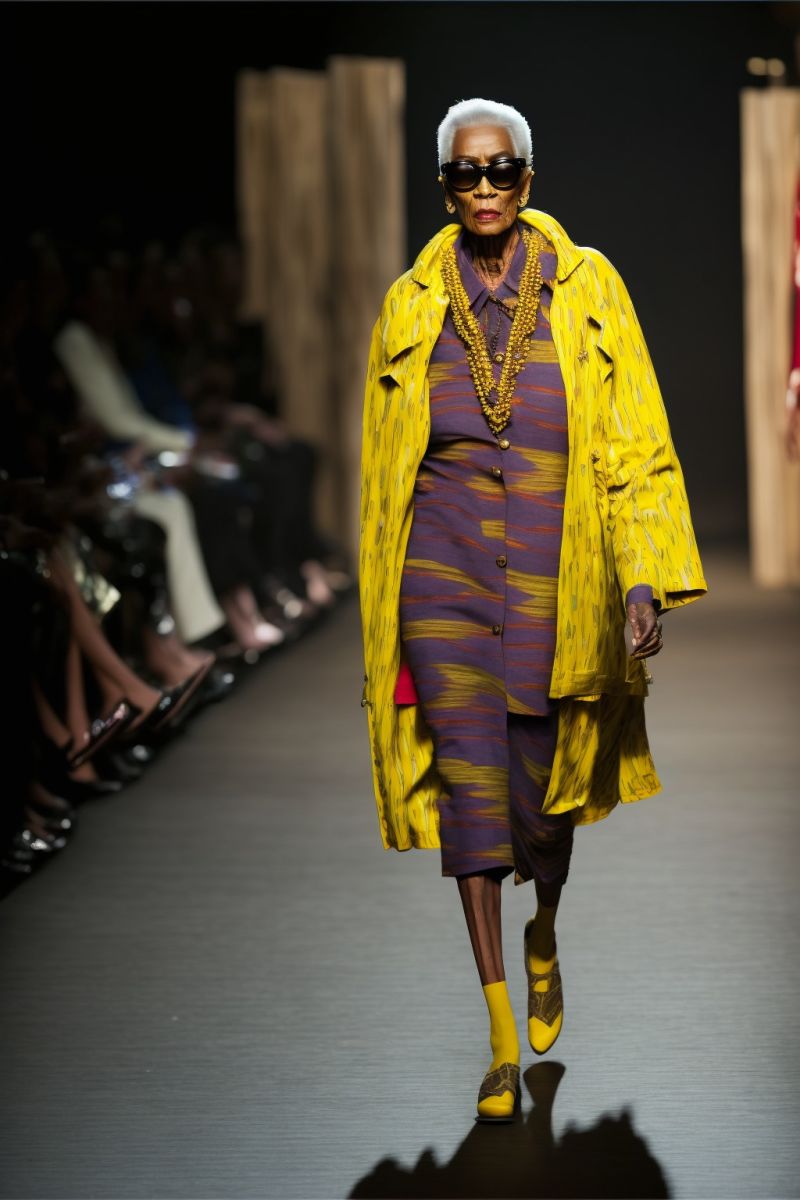
“When it comes to AI, you put in a text prompt, it gives you something random – you keep going to different depths until you find what you want,” he said.
There has been much controversy over racial and gender bias in AI. Facial recognition technology can be less accurate for Black skin than White, and AI systems to spot skin cancer have been found to be trained predominantly on White skin. It’s also been noted that AI art platforms can produce pictures that reflect the cultural biases of images found on the internet.
Afegbua said that until his mother’s stroke, he had only worked experimentally with images of Black people on AI platforms, but he found that the images they produced were “mangled up and not very good.”
He noticed that the images produced of Black Americans were different than those of Black Africans. “When you put ‘African’ they look less dapper and in a less nice environment,” Afegbua explained.
Through repeated searches using variations of his text prompts, he says he was able to train the AI and improve the images it produced of Black people. “Now anyone can go into the AI and put ‘a Black man in a fashion show’ and you are going to get something like what I did, because it’s now in the system,” he said. “Because I’ve done it, the system now has that data.”
Afegbua believes AI can be a powerful tool for the arts – film and television in particular. “It’s here to stay … it’s going to evolve and it’s going to get better,” he said. But he says the role of a human creator is still key. “AI is not All. It can’t think by itself, there is always a human being behind it regardless – to put things in motion,” he added.
His other AI projects include creating a virtual futuristic city called “Ngochola,” populated by people who are heroic, beautiful and African. Afegbua says he wanted the city to reflect ancient African civilizations, and “the power that technology would play in that society” if it weren’t for colonialism. But it is “The Elders Series” that has got him the most attention.
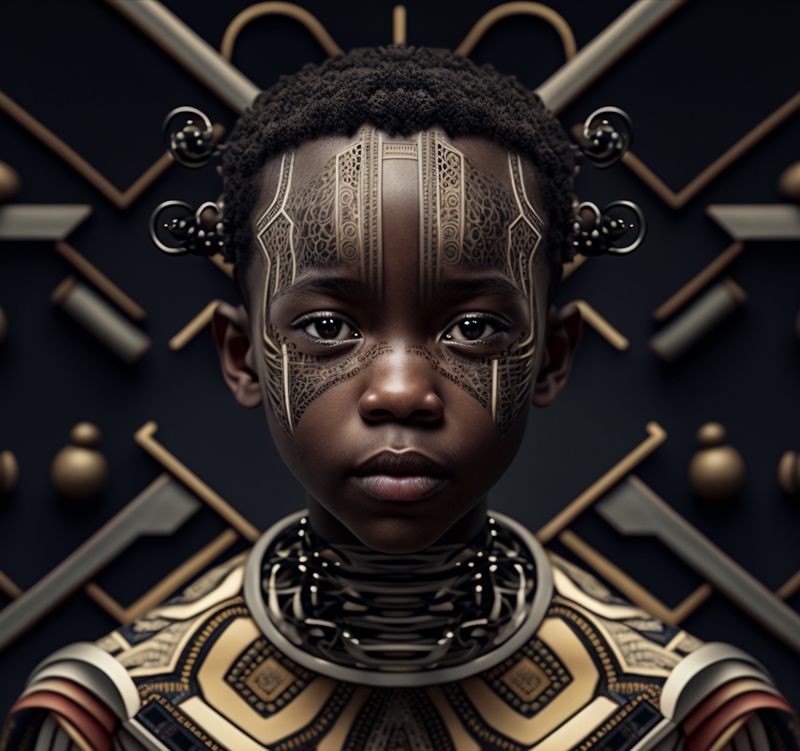
Afegbua says that since he shared the images he has been invited to exhibit his work at galleries in the US, France and Brazil, and has signed a deal to work on a Hollywood movie. But perhaps more rewarding is the recognition he’s received for presenting older people in a positive light.
“I’ve had many associations that have to do with the elderly contact me asking how we can collaborate,” he said, adding that the World Health Organization had been in touch to tell him that it views his work as “a major, positive contributor in the global effort by the WHO/UN’s Decade of Healthy Ageing in combatting ageism.”
“I didn’t think it was going to resonate with the world like that,” Afegbua said. “I am glad that people are starting to have that conversation.”
Don't Miss
CNN — The end of an era is fast approaching at Comedy Central’s “The Daily Show,” and the network has
CNN
—
For years, the people in the villages around Chingola in Zambia endured frequent health challenges and dead fish floating around in their water source, but that was just the beginning of their nightmare.
In 2006, their once-clear river water suddenly turned a vivid blue, tainted by waste from the copper mine owned by the Zambian subsidiary of UK-headquartered mining giant, Vedanta Resources, according to a 2015 Zambian Supreme Court ruling.
Villagers suffered nose bleeds, rashes, and abdominal pain, and some even had blood in their urine, which was a result of contamination by the Zambian subsidiary Konkola Copper Mines (KCM), said Chilekwa Mumba, the son of a former miner who has been fighting for justice on behalf of the communities.
The Supreme Court ruling found that KCM was in contravention of its license and that the “final straw” was the bursting of slurry pipes which “discharged” acidic effluent into the tributaries of the Kafue River, which provides almost half of the country’s drinking water.
But attempts by residents to get compensation for damages caused to their environment had been unsuccessful in Zambia.
In 2015, Mumba launched an epic David versus Goliath fight to try to secure compensation for the community.
The community organizer, led a six-year legal battle in the UK that eventually led to Vedanta Resources and its subsidiary Konkola Copper Mines (KCM) paying compensation to 2,500 Zambian villagers, although the companies admitted no liability.
Along the way, Mumba helped to set a new precedent, allowing a British company to be sued for the actions of its subsidiary in another country.
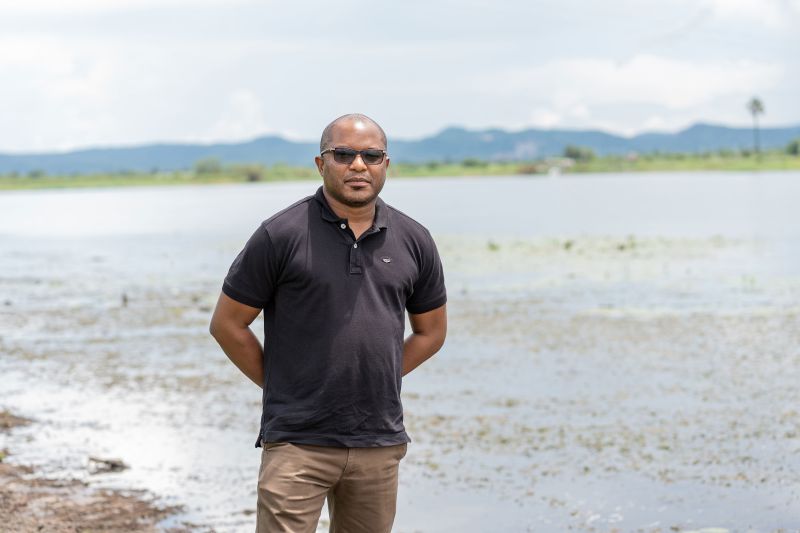
On Monday, Mumba, 38, was awarded the 2023 Goldman Environmental Prize for Africa for his work for the community and setting legal precedent.
“It’s a wonderful feeling to receive this award,” he told CNN. “It’s the culmination of work which was done, not just by me but even the community themselves … who stood up against injustice and stood with us for six years.”
Mumba, a father of three, is one of six global winners of the prestigious award, which honors grassroots environmental activists.
The prize is awarded each year by The Goldman Environmental Foundation, with ceremonies in San Francisco and Washington, DC.
Zambia is Africa’s second-biggest copper producer and its economy relies heavily on copper mining, which generates more than half of its revenue from exports, according to the Extractive Industries Transparency Initiative (EITI).
KCM is one of Zambia’s largest mining operations and also one of the country’s biggest private employers, according to its website.
CNN has reached out to Vedanta and KCM for comment but has not received a response.
Mumba said he faced a battle getting justice for Chingola communities suffering the effects of pollution.
In 2011, the Lusaka High Court ordered KCM to pay $2 million to 2,000 Chingola villagers for polluting Mushishima, a tributary of the Kafue River, with toxic chemicals.
The Environmental Council of Zambia, a body set up to protect the environment, provided evidence to the court that KCM violated its license by discharging acidic mine water waste into the river.
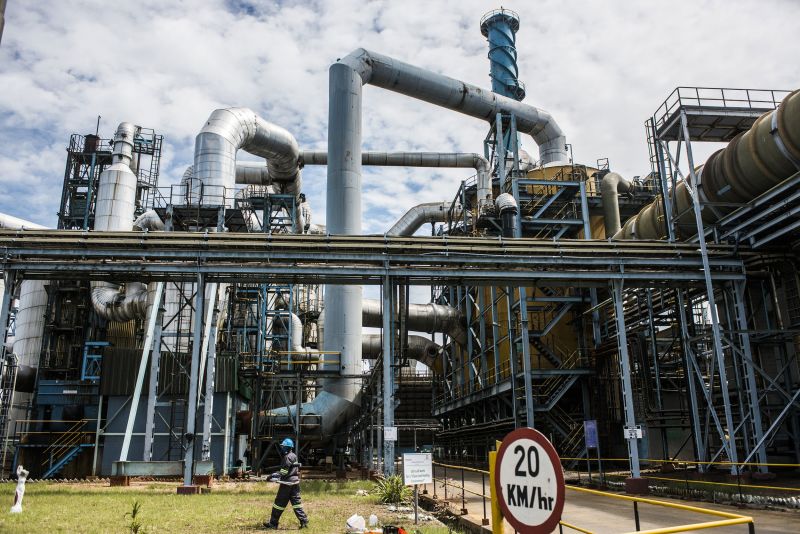
While the Supreme Court of Zambia later upheld the verdict that KCM polluted the villagers’ water source, it overturned the ruling on compensation, as the lower court had not fully assessed the extent of injury and damages for each of the 2,000 people.
Only six villagers had provided evidence to the high court of health complications, according to the Supreme Court ruling.
Determined to get justice for affected Chingola communities despite setbacks in the Zambian courts, Mumba approached English law firm Leigh Day in 2015 to launch a legal challenge against KCM’s parent company Vedanta in the UK.
No UK parent company had been held liable for environmental damages caused by their overseas operations at the time.
Vedanta Resources, founded by Indian billionaire Anil Agarwal, has had a controlling stake over KCM since 2004, with the Zambian government retaining minority control. CNN has contacted Vedanta and the Zambian state mining company for comments.
Mumba said he played the role of facilitator between community members and Leigh Day lawyers. He said he managed to convince the claimants to provide blood samples for analysis of the health impacts of the pollution, overcoming people’s concerns that their blood samples would be misused.
He recounted nearly being attacked by reptiles while wading through a flooded river during the rainy season to gather water quality samples for the case.
“It was just sheer will,” he told CNN. “The very first day we were collecting samples, we saw a snake just fall out of a tree. We laughed about it and moved on because we knew what we were trying to achieve. We also had to go close to a crocodile infested river, so there was always that threat.”
Mumba said he faced other challenges, including being arrested by local police in 2017 for not having the required permission from authorities to address thousands of villagers from polluted communities.
“I did feel threatened at certain times,” he said.
The road to compensation was lengthy.
A breakthrough came in 2019, when a landmark ruling from the UK Supreme Court held that the Zambians could sue Vedanta in the English courts, finding that Vedanta, as the parent company of KCM, owed the villagers a duty of care.
The ruling added that “even if Zambia would otherwise have been the proper place in which to bring the claims, there was a real risk that the claimants would not obtain substantial justice in the Zambian jurisdiction.”
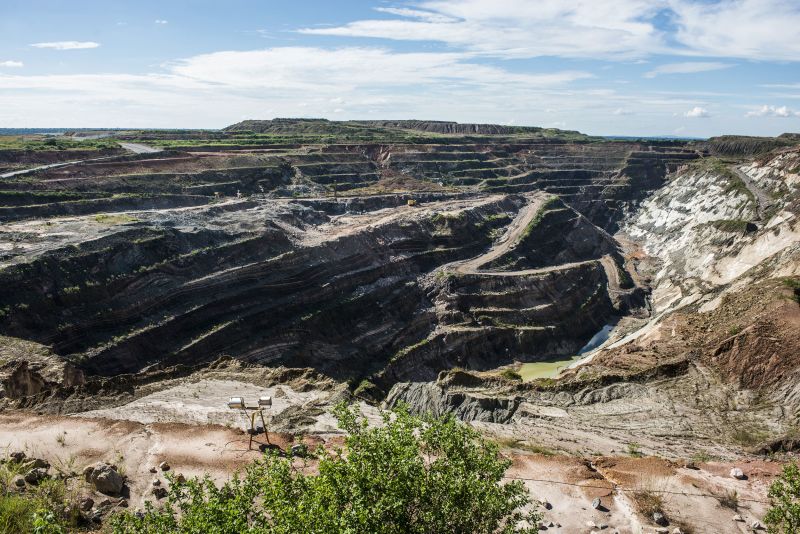
The litigation was eventually settled. In January 2021, Vedanta announced in a joint statement with Leigh Day: “Without admission of liability, Vedanta Resources Limited and Konkola Copper Mines Plc confirm that they have agreed, for the benefit of local communities, the settlement of all claims brought against them by Zambian claimants represented by English law firm Leigh Day.”
A Leigh Day spokesperson, Caroline Ivison, told CNN that the amount paid as compensation was “confidential under the terms of the settlement agreement.”
Leigh Day attorney Oliver Holland, who worked on the Vedanta case, said in an email to CNN, that the 2019 UK Supreme Court ruling has established “an important precedent for providing access to justice for foreign claimants in transnational corporate liability litigation.”
Following the Vedanta case, the UK top court also ruled in the same year that two Nigerian communities could sue oil company Royal Dutch Shell and its Nigerian subsidiary in the English courts.
Peter Sinkamba, a prominent environmentalist in Zambia, said KCM’s now restricted operations due to a legal dispute over liquidation, have reduced pollution in the Copperbelt area. Zambian authorities handed control of the firm to a liquidator in 2019, sparking a legal dispute with Vedanta, the company’s largest shareholder.
Sinkamba, was among those who helped repeal a law preventing Zambian communities from suing mines for pollution in 1996, said the country’s judiciary is now building expertise in handling environmental cases. CNN has reached out to the office of the chief registrar of the Zambian judiciary.
Despite the risks posed to communities and wildlife in Zambia, mining operations are still being approved. The government, however, says that approved projects will follow environmental policies set by the Zambia Environmental Management Agency (ZEMA).
Environmentalists were angered when Zambian authorities supported a huge open-pit mine for copper in Lower Zambezi National Park last year. Sinkamba says they fear that the project will harm the vital wildlife conservation area.
For Mumba, who now runs an orphanage in the Zambian capital Lusaka with his wife, the battle is far from over.
“I’m still working to make sure that our communities live in better ways in terms of the extractive industry. We want pollution and environmental degradation minimized if we cannot stop it,” he told CNN.
“We remain focused in holding those companies accountable … and the communities must be seen to get some justice.”
Don't Miss
CNN — Here is a look back at the events of 2023. January 3 – Republican Kevin McCarthy fails to
German Chancellor Olaf Scholz on Monday assured Moldova of Berlin’s support on its path to accession to the European Union
Euro 2022 winner Alessia Russo on making history, inspiring a generation and that viral backheel goal Alessia Russo burst onto
Lagos, Nigeria
CNN
—
Nigerians began voting on Saturday in delayed governorship polls, weeks after a controversial and disputed presidential election – amid reports of electoral violence and voter disenfranchisement.
A party official was shot and killed in Lagos Saturday during the elections for Nigeria’s new state governors.
“From all over Lagos we are getting distressing reports of voter intimidation, voter suppression. One of our agents was shot and he is dead,” Labour candidate Gbadebo Rhodes-Vivour, running to be governor of Lagos state, said in a video statement.
Independent National Electoral Commission (INEC) spokesman Festus Okoye told CNN, “We are collating and harvesting reports from the different states of the federation before we can take a decision.”
Reports of disenfranchisement continued Saturday, as around 6,000 residents of Victoria Garden City in Lagos said their polling station had been moved outside of their gated complex without notice and claimed electoral staff left before a single resident had cast a vote.
The gubernatorial race will be decided in 28 of Nigeria’s 36 states as the ruling party scrambles to regain lost ground in key states.
But all eyes will be on the tense contest for control of the country’s wealthy Lagos State.
“This may be the most competitive governorship election in Lagos State,” political analyst Sam Amadi tells CNN.”Many have tried to upturn Lagos in the past and failed because of the entrenched power of Bola Tinubu. As President-elect, his influence may have grown in Lagos but the Obidients are strong,” Amadi says, speaking of supporters of Labour Party presidential candidate Peter Obi.
Obi caused shockwaves when it emerged he beat President-Elect Bola Tinubu in his Lagos home turf but placed third in the presidential poll.
Obi has rejected Tinubu’s victory and is contesting the results in the courts.
The presidential elections on February 25 were widely criticized for widespread delays, outbreaks of violence and attempts at voter suppression.
Several observers including the European Union also said the election fell short of expectations and “lacked transparency.”
The battle for Lagos, Nigeria’s commercial hub and one of Africa’s largest cities has typically been a two-party race that has never been won by the opposition.
This is partly credited to political godfather and kingmaker, Bola Tinubu, who is said to have handpicked every Lagos governor since leaving office in 2007.
Tinubu’s firm grip on Lagos politics now faces an unprecedented threat in Obi’s third-force Labor Party, after losing on home turf.
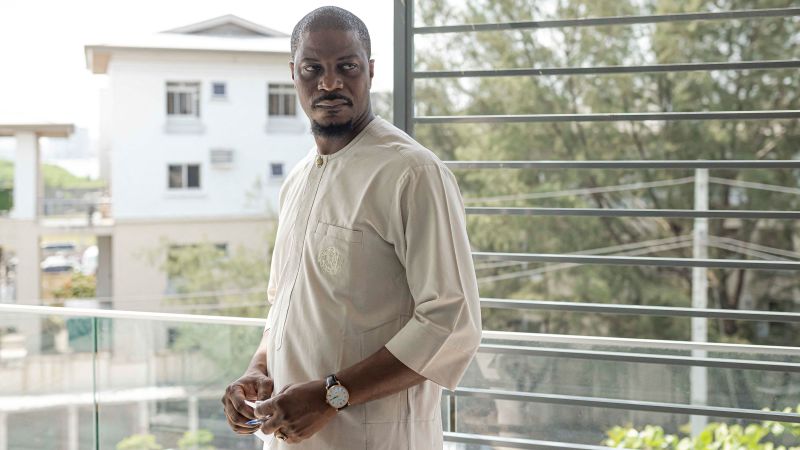
Obi is the first presidential candidate from the opposition to win in Lagos.
Amadi says his popularity with young people might be the game changer in the Lagos gubernatorial poll.
“They (Obidients) won Lagos in the last (presidential) poll but feel cheated and suppressed. So we might see a more vehement fight. It depends on how motivated and aggrieved the Obidients feel now,” he said.
Fifteen candidates are seeking to unseat incumbent Governor Babajide Sanwo-Olu of the ruling All Progressives Congress party, who is seeking a second term. But only two are viewed as real threats to his reelection.
Considered a long shot only a few weeks ago, Labor Party’s Gbadebo Rhodes-Vivour is now riding on Obi’s wave and has gained momentum following his party’s surprise win in Tinubu’s stronghold,
The People’s Democratic Party’s Azeez Olajide Adediran, also known as Jandor, is another strong contender aiming to clinch the Lagos seat for his party for the first time.
Adediran’s party has polled second in every governorship vote in Lagos since the return to civilian rule in 1999.
Both men tell CNN they are confident of victory. “For the first time, PDP is going to take Lagos, and I’m going to be the governor,” says Adediran. “People are really tired … the streets of Lagos are yearning for a breath of fresh air and that is what we represent,” he adds.
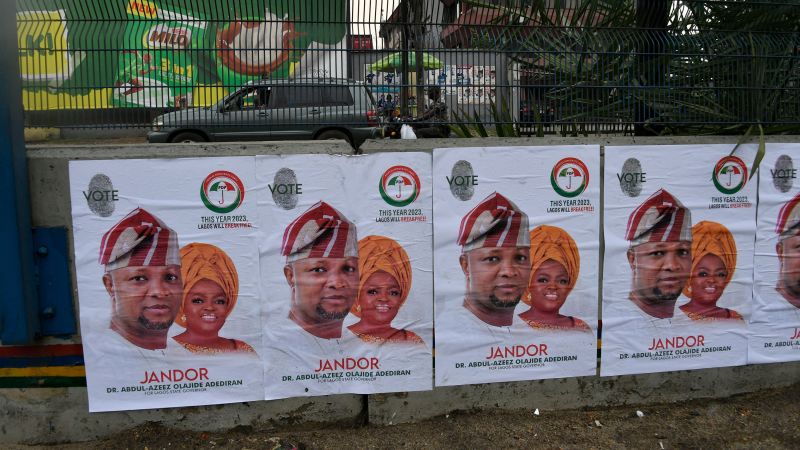
Rhodes-Vivour told CNN the time to liberate Lagos from “state capture” has come, and he’s next in line to govern the state.
“I’m next governor of Lagos state,” he declared. “You cannot stop an idea whose time has come. The idea of a new Lagos … that is powered by the people and works for the people as opposed to state capture; that idea, its time has come and no matter what they do, they can’t stop it. That’s where the confidence comes from.”
Governor Sanwo-Olu has asked voters to re-elect him because of his achievements, which he touts have brought “significant progress” to Lagos, including his commendable handling of the COVID pandemic.
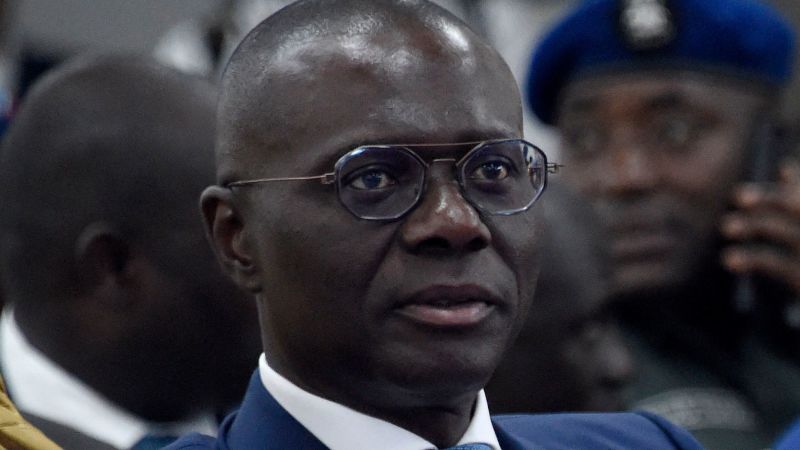
But the governor has failed to pacify angry young people who accuse him of playing a role in the shooting of peaceful protesters railing against police brutality in 2020 by Nigerian soldiers.
Sanwo-Olu admitted to CNN at the time that footage showed uniformed soldiers firing on peaceful protesters but recently denied ordering the shooting.
Analyst Amadi tells CNN the gubernatorial poll in Lagos will be a contest between retaining or evicting the old guard.
“Lagos is a fight between status quo and change,” Amadi said.
“The incumbent Sanwo-Olu has a good chance of holding his job. But he faces a serious challenge from Gbadebo (Rhodes-Vivour) who has the momentum (of the Obi wave). Jandor (Adediran) is left behind because PDP had been dismantled in southern Nigeria and has no enthusiasm factor in Lagos,” Amadi said.
“Sanwo-Olu has not been spectacular but is believed to have performed well in some aspects of keeping Lagos going. He may survive the popular revolt on Saturday … but watch out for an upset if the scaremongering of APC and the loss of trust in INEC’s integrity do not demotivate the young voters,” he added.
Besides attempts at voter suppression, a widespread loss of confidence in the electoral body’s ability to conduct credible elections has eroded the electorate’s trust in the democratic process.
Only 26% of Nigeria’s more than 93 million registered voters turned up to vote in the last election. This was much lower than the 2019 poll when a third of registered voters ended up voting.
David Ayodele of civic group EiE Nigeria, tells CNN the February 25 election “deepened the trust deficit between the (electoral) commission and the electorates.”
Ayodele urged the electoral body to redeem itself in the weekend poll by “naming and prosecuting INEC officials who were caught tampering with the electoral process.”
Last month, Lagos police authorities said they were investigating an audio clip, in which two men were heard threatening residents of a local community to vote for candidates of the ruling APC or risk being evicted from the area.
Polls will open from 8:30 a.m. local time (3:30 a.m. ET) Saturday and are expected to close at 2:30 p.m. (9:30 a.m. ET).
Don't Miss
CNN — Although Nigeria has vast energy reserves, more than 92 million people in the country live without access to

London
CNN
—
The UK’s controversial policy to deport some asylum seekers to Rwanda was deemed lawful by the country’s High Court on Monday.
A group of NGOs, asylum seekers and a civil service trade union had questioned the legality of the scheme, which would see asylum seekers deemed to have entered the UK illegally sent to Rwanda to have their asylum claims processed.
The court deemed the government is able to make those arrangements. But it also criticized Home Secretary Suella Braverman for failing to properly assess the circumstances surrounding individual people set to be moved under the scheme.
Braverman “must decide if there is anything about each person’s particular circumstances which means that his asylum claim should be determined in the United Kingdom or whether there are other reasons why he should not be relocated to Rwanda,” Lord Justice Lewis said in his ruling.
She “has not properly considered the circumstances of the eight individual claimants whose cases we have considered,” the judge continued. Those eight cases will be sent back to the Home Office for Braverman to reassess, he said.
The UK government’s partnership with the East African country has been the subject of fierce criticism since it was announced by former UK Home Secretary Priti Patel in April.
It has been backed by ex-Prime Minister Boris Johnson, his successor Liz Truss and current leader Rishi Sunak, along with most of the ruling Conservative party.
But it has a host of critics, including dozens of refugee rights groups, international agencies, British lawmakers on both sides of the House of Commons, the head of the Anglican church and some Rwandan opposition politicians.
The first flight to Rwanda was set to take off on June 14, but the European Court of Human Rights stepped in at the eleventh hour, and months of legal challenges have stalled the program in the months since.
The UK says it will pay Rwanda £120 million ($145 million) over the next five years to finance the scheme.
Braverman welcomed the Monday verdict, saying in a statement that she is “committed to making this partnership work.
“My focus remains on moving ahead with the policy as soon as possible and we stand ready to defend against any further legal challenge,” she said.
But the ruling was met with disappointment from campaigners, who have long contended that the plan is unethical and ineffective.
“We are very disappointed in the outcome of this case. If the Government moves ahead with these harmful plans, it would damage the UK’s reputation as a country that values human rights and undermine our commitment to provide safety to those fleeing conflict and oppression, as enshrined in the 1951 Refugee Convention,” Enver Solomon, chief executive of the Refugee Council, said in a statement.
“Treating people who are in search of safety like human cargo and shipping them off to another country is a cruel policy that will cause great human suffering,” Solomon added. “The scheme is wrong in principle and unworkable in practice.”
The number of people making dangerous journeys across the English Channel in small boats has spiked in recent years, with 2022 once again seeing record highs despite the government insisting that the Rwanda policy would work as a deterrent.
It remains to be seen whether the policy will now operate effectively; the prospect of individual claims on behalf of migrants still threatens to scupper Sunak’s plans to get the policy off the ground.
But the ruling will be welcomed by the government, which has sunk in popularity and lost the faith of most voters on a number of issues, according to opinion polls.
Don't Miss
“Jeopardy!” fans are confused and more than a little miffed after a controversial Final Jeopardy! clue divided contestants in the
Verizon has brought back its unlimited data plan. That’s great if you’re a Verizon customer. But it is terrible news





